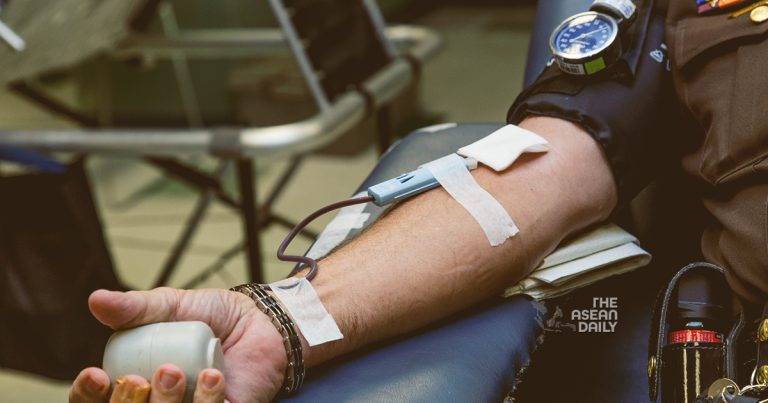8-8-2023 (WASHINGTON) In a groundbreaking announcement, the American Red Cross declared on Monday that it will no longer impose discriminatory restrictions on blood donation by gay and bisexual men, marking a pivotal stride towards a more inclusive and equitable blood donation process.
“The Red Cross heralds this momentous shift as a remarkable advancement and remains steadfast in its commitment to establishing an all-encompassing blood donation procedure that treats every potential donor with parity and dignity, all the while safeguarding the integrity of the blood supply,” the humanitarian institution articulated in an official statement.
This landmark policy transformation follows the release of updated guidelines by the U.S. Food and Drug Administration (FDA) in May, ushering in a new era of inclusivity that will extend the pool of eligible blood donors.
Central to the FDA’s novel individual assessment policy is the comprehensive inquiry into each prospective donor’s history within the past three months. A key focus of the assessment involves inquiries about any recent or multiple sexual partners.
Should an individual indicate the presence of a new sexual partner or multiple partners within the specified timeframe, they would subsequently be queried about whether they engaged in anal intercourse over the same duration. A positive response to the latter query would lead to the deferral of their blood donation.
The rationale behind these measures is underpinned by the elevated risk associated with penetrative anal sex in terms of transmitting various sexually transmitted diseases. The delicate and susceptible nature of the anal lining renders it more susceptible to damage, thereby heightening the likelihood of infection transmission.
This progressive policy overhaul supersedes earlier protocols that had unfairly singled out men who have sex with men (MSM), as well as women who have sexual encounters with MSM, by imposing time-based deferrals.
For individuals like Andrew Goldstein, a Los Angeles-based cancer researcher, this transformation is deeply meaningful. Goldstein, a former regular blood donor whose eligibility had been curtailed due to the FDA’s previous guidelines for gay men, expressed his elation at the newfound opportunity.
“The act of donating blood might seem trivial, but its significance is immeasurable to me. Knowing that I can contribute once again is incredibly meaningful,” Goldstein shared. His involvement in a clinical study during 2021 played a pivotal role in laying the groundwork for the revised guidance.
The American Red Cross highlights the critical importance of blood donation in sustaining healthcare operations across the nation. Every two seconds, a person in the United States requires blood or platelets, vital for surgical procedures, cancer treatment, addressing chronic illnesses, and managing traumatic injuries.
The organization emphasizes the far-reaching impact of each donation, whether it involves whole blood, red cells, platelets, or plasma. This life-affirming contribution commences with the benevolent act of a single individual, ultimately culminating in the delivery of lifesaving care.




